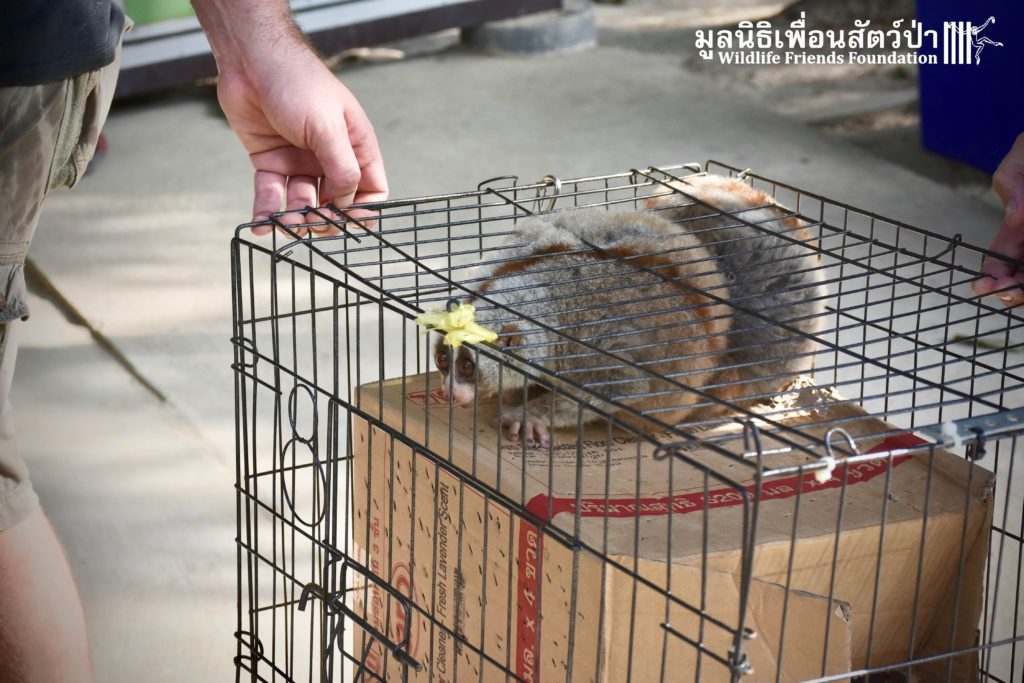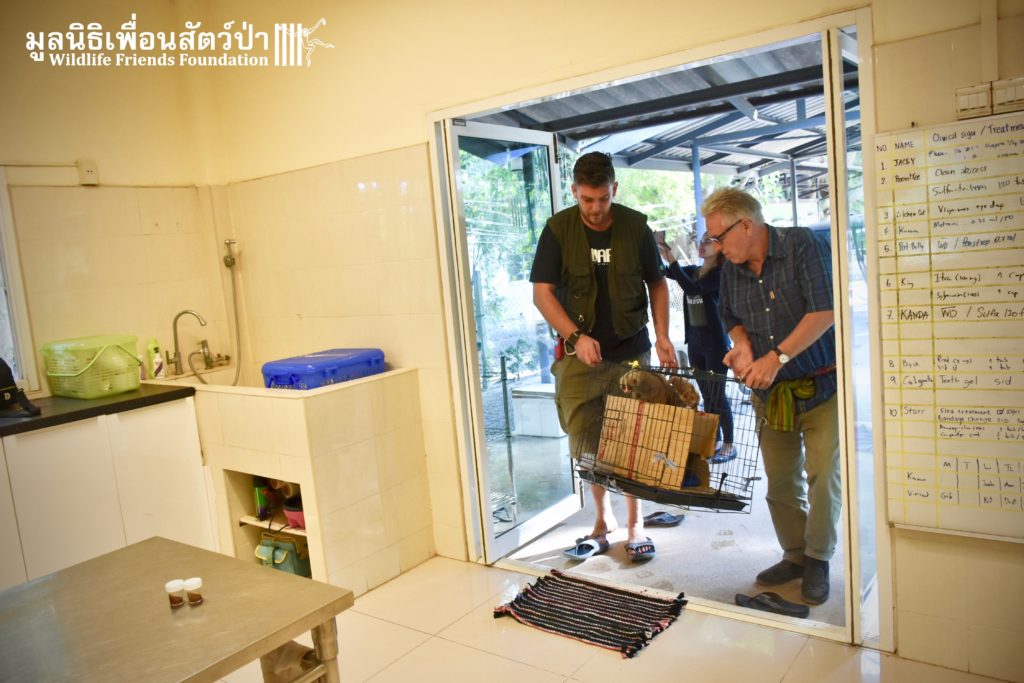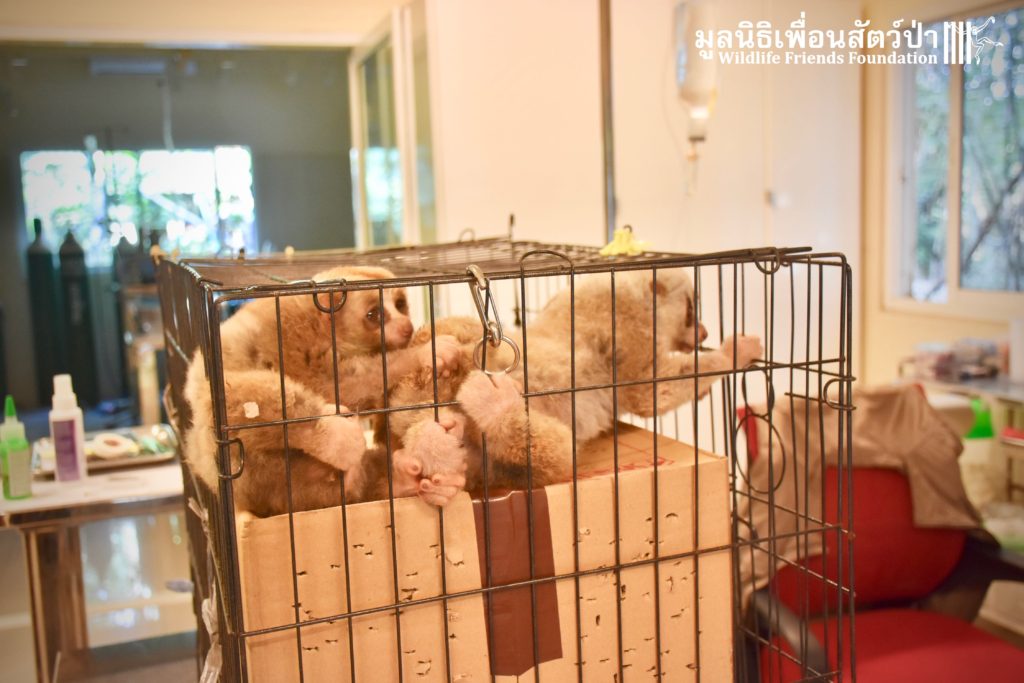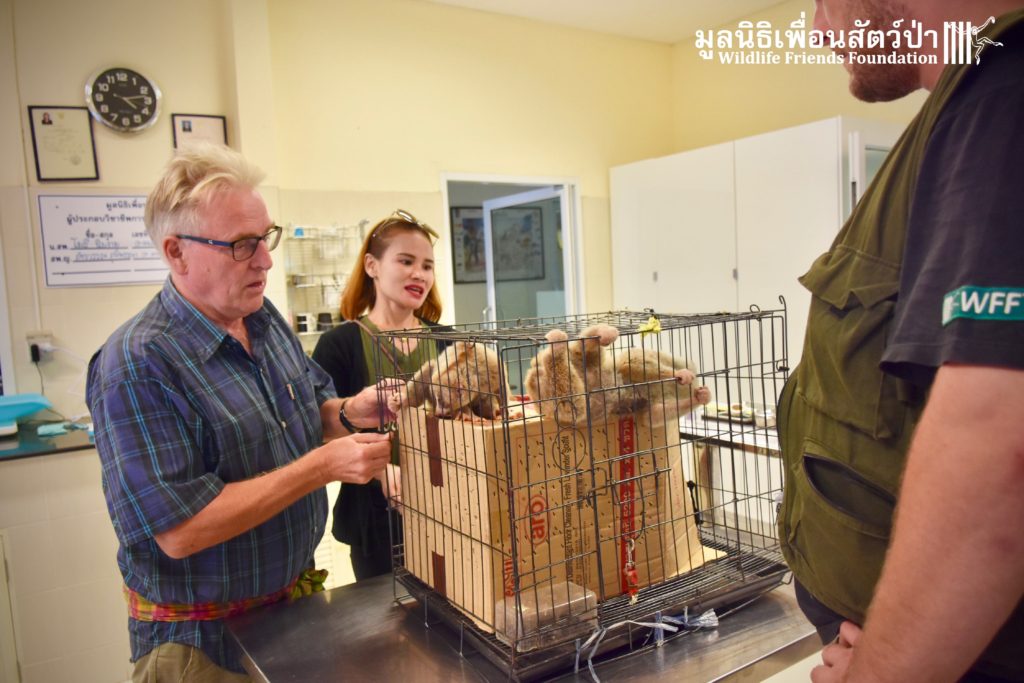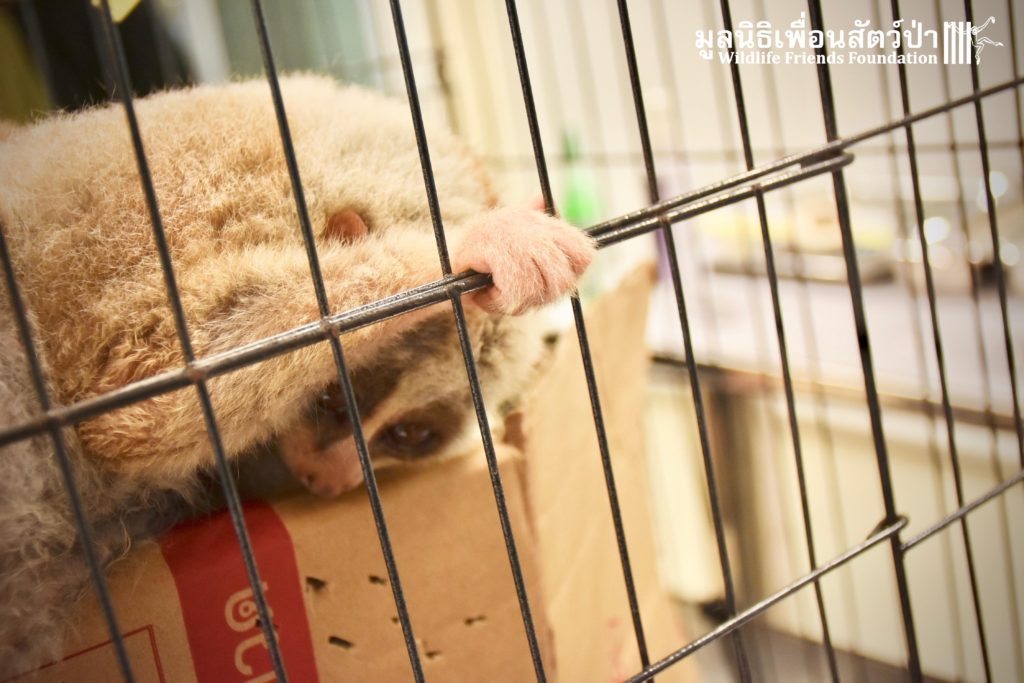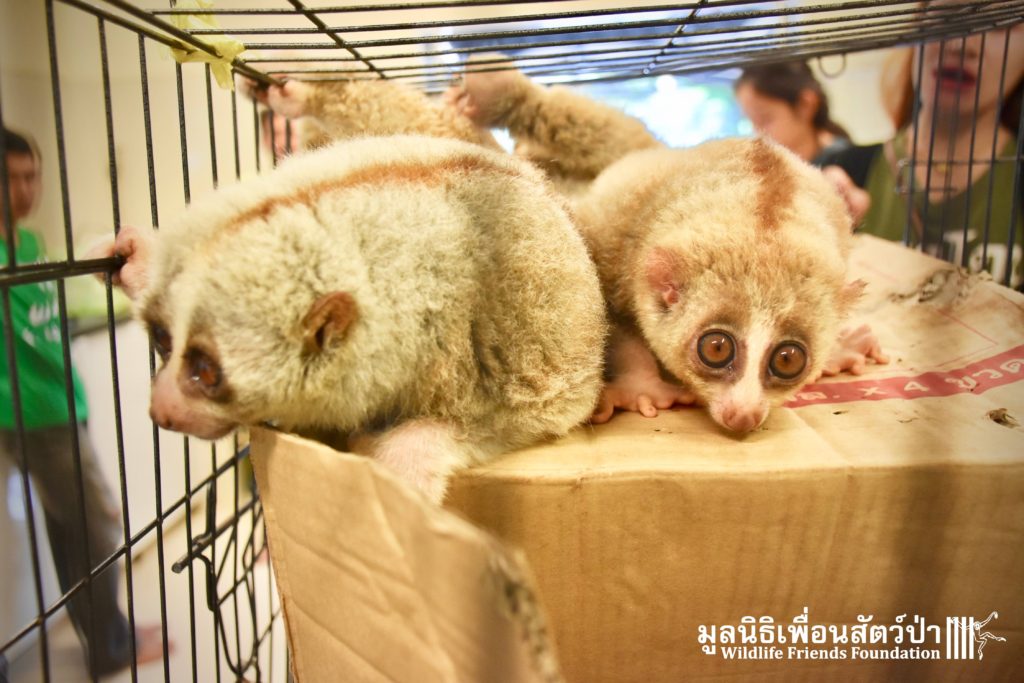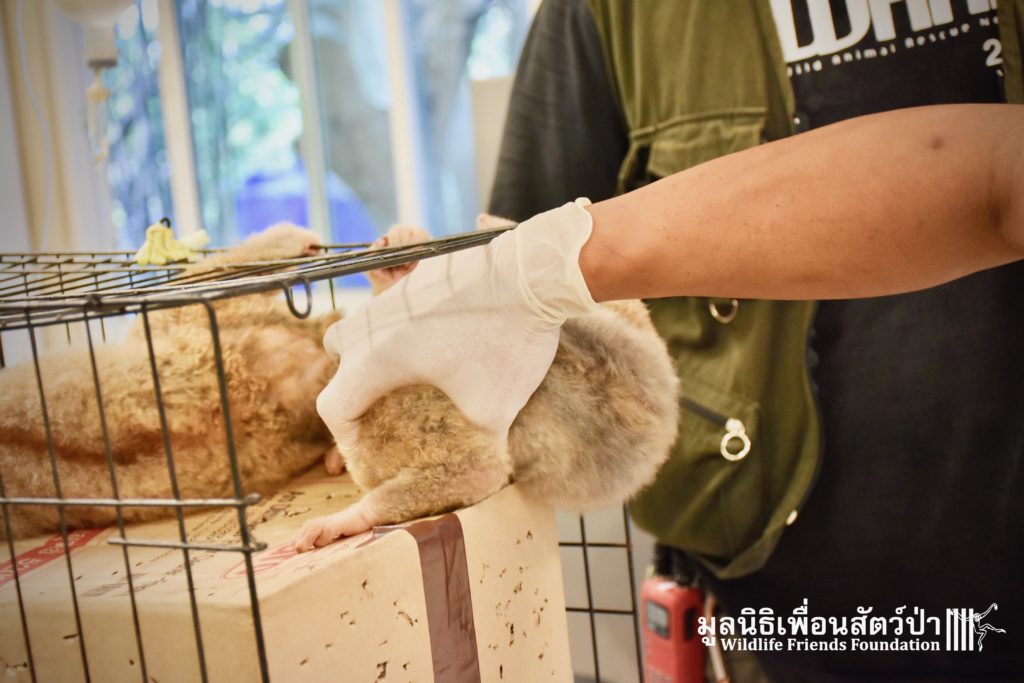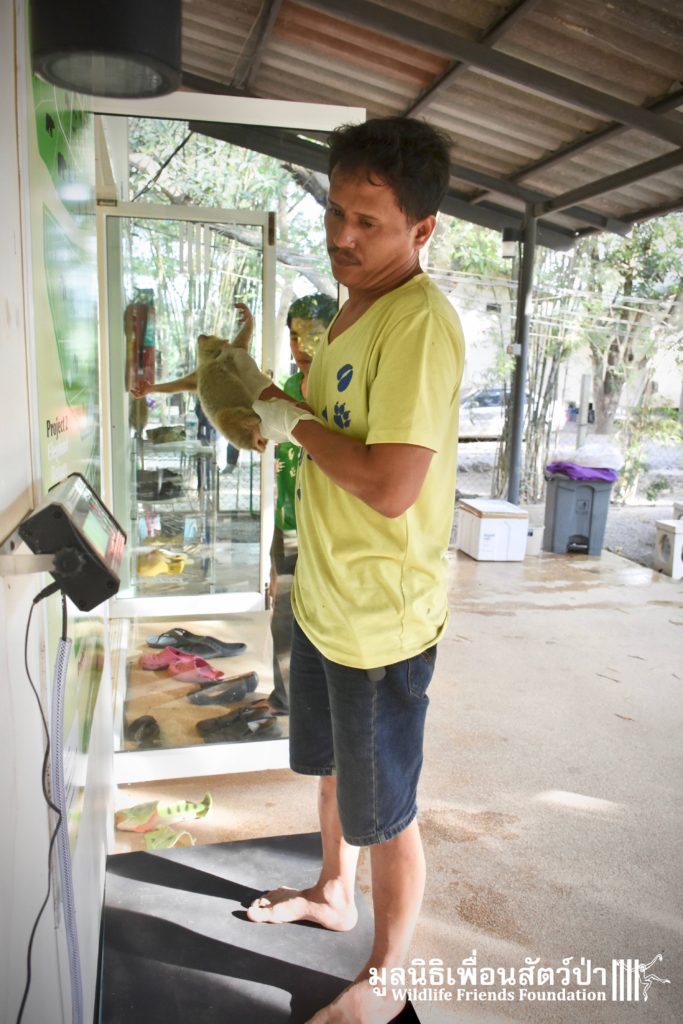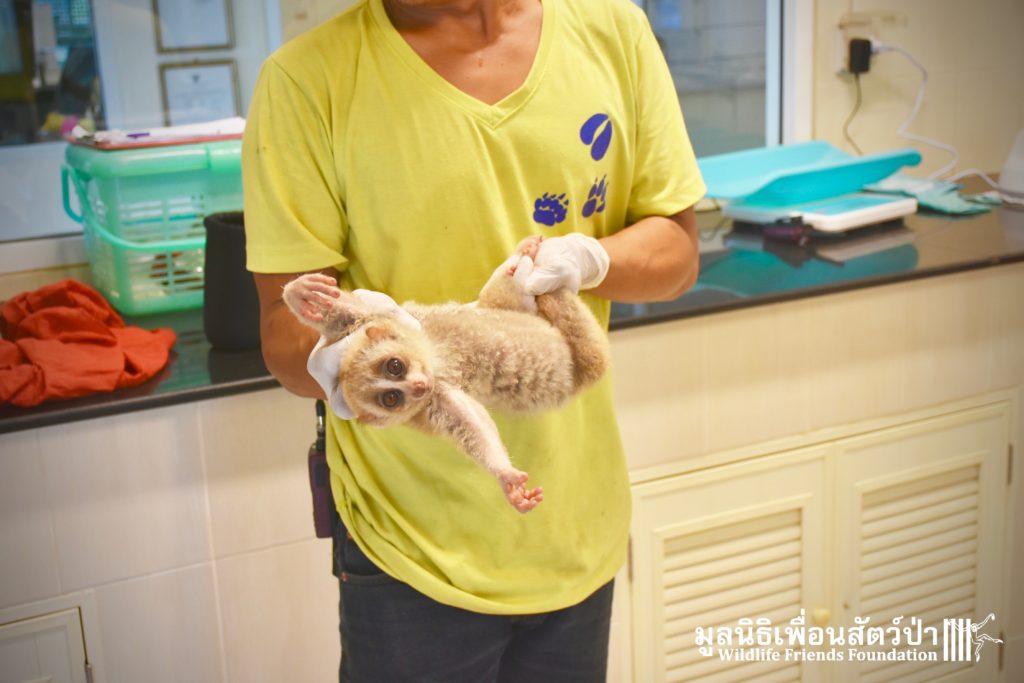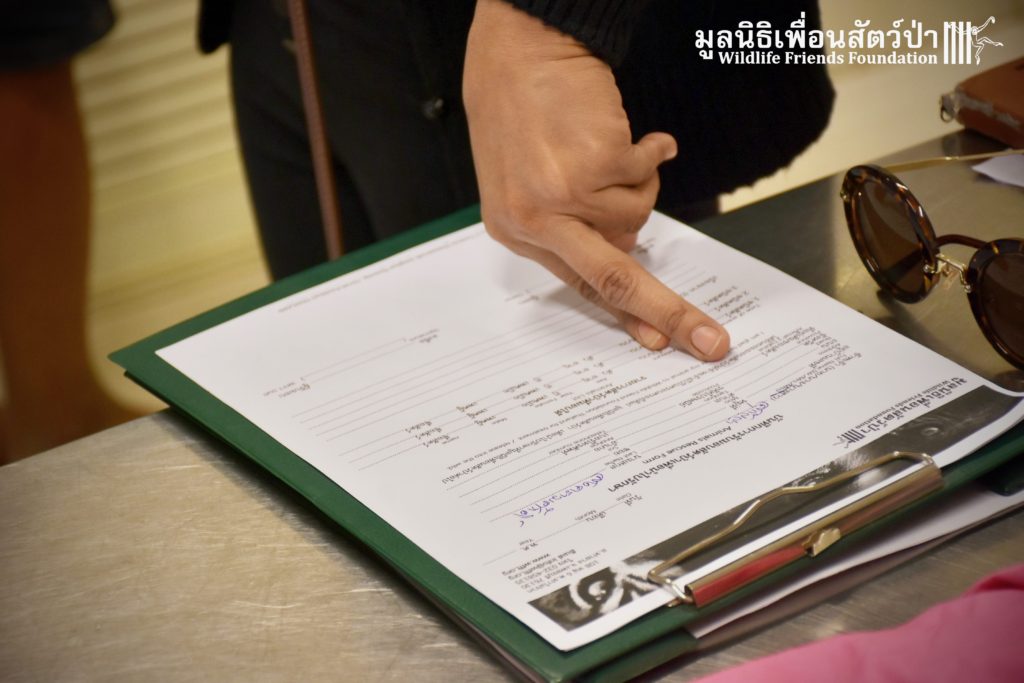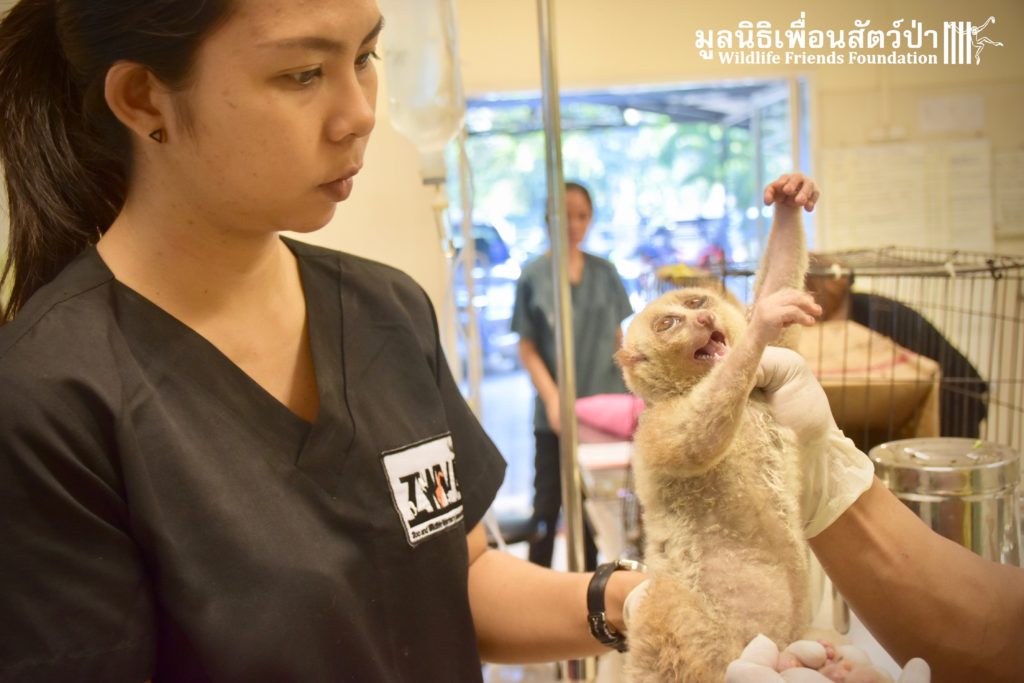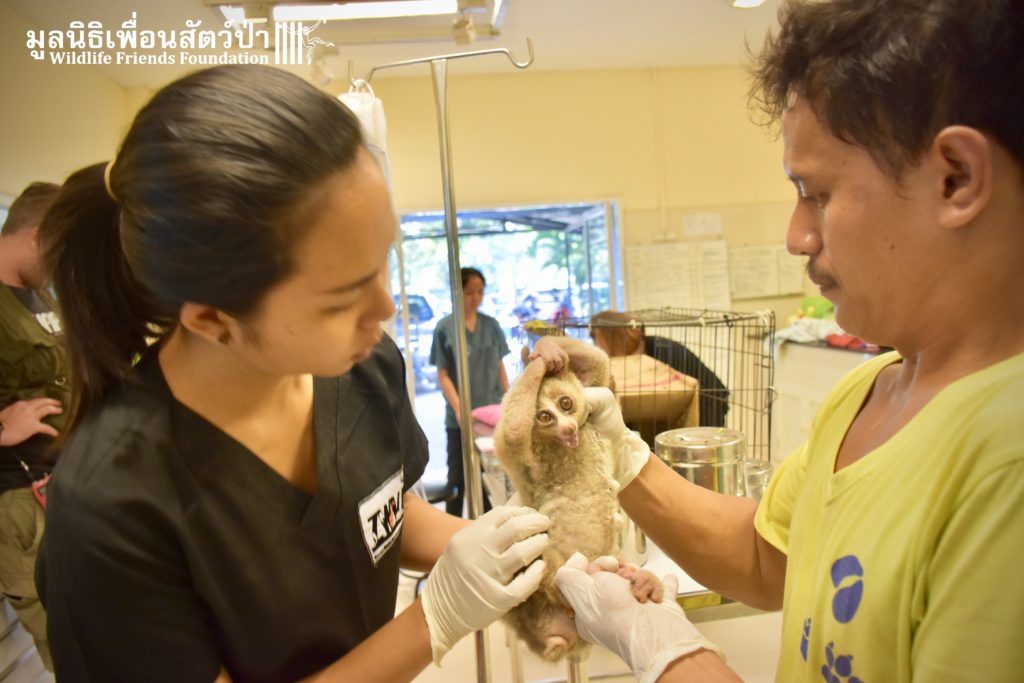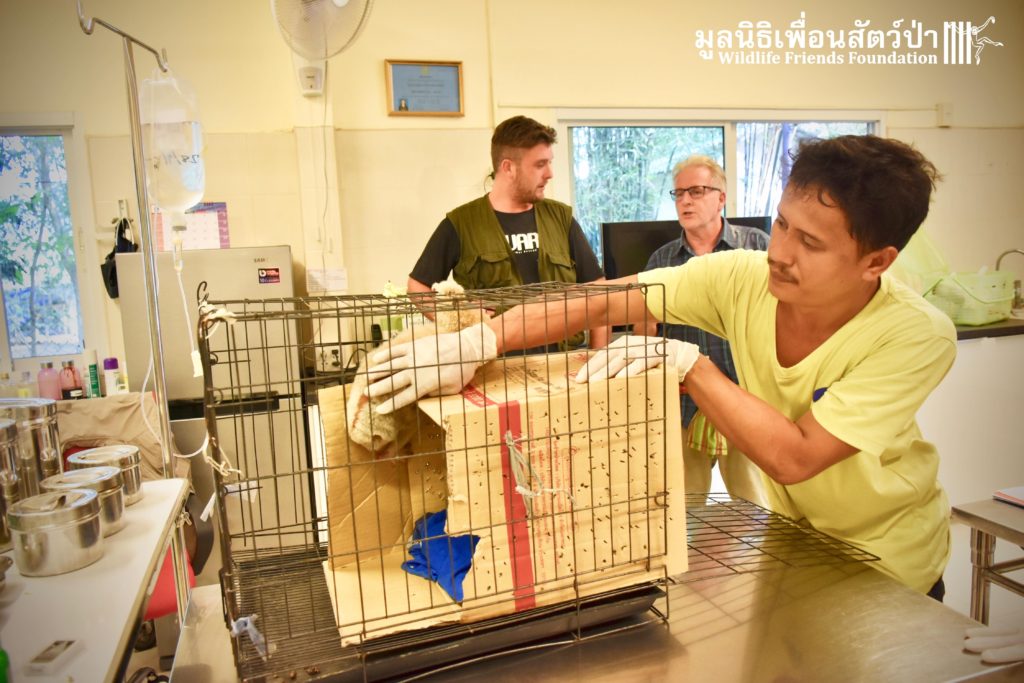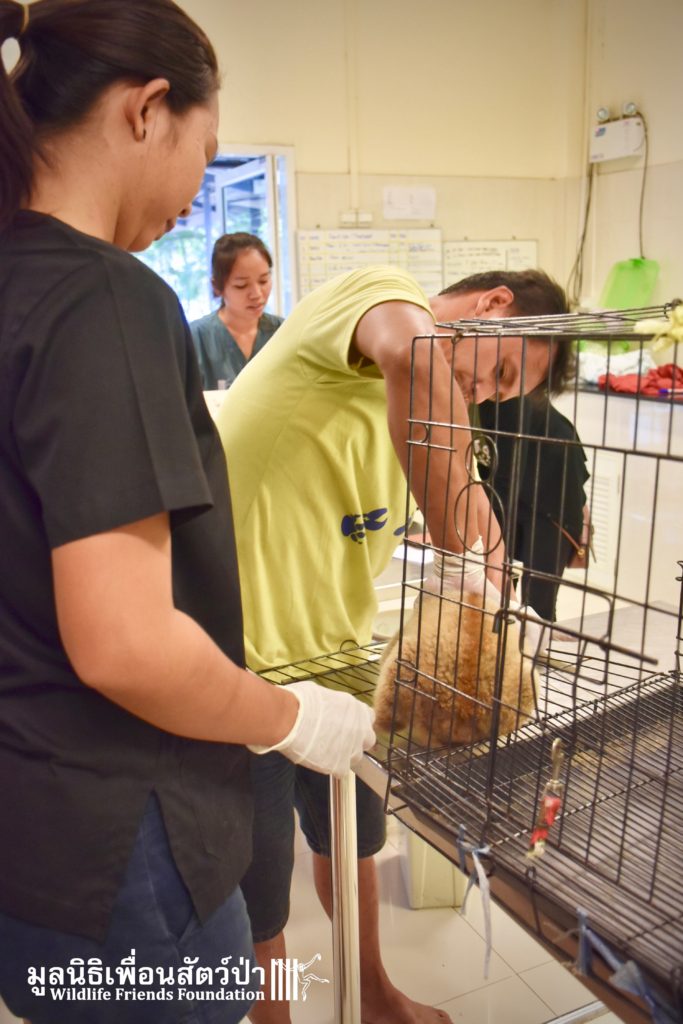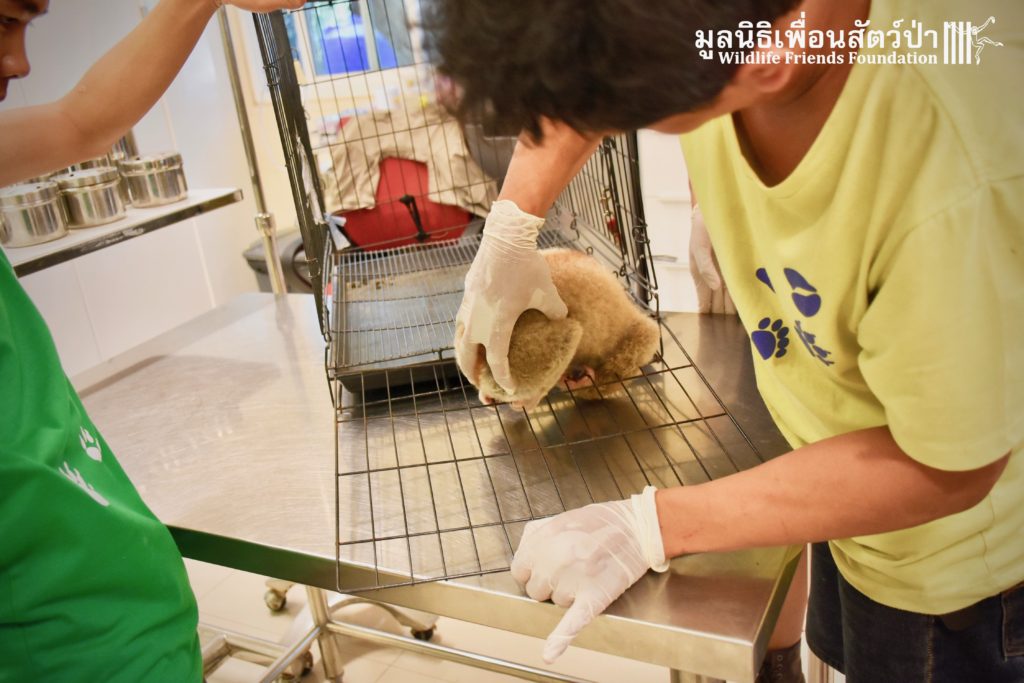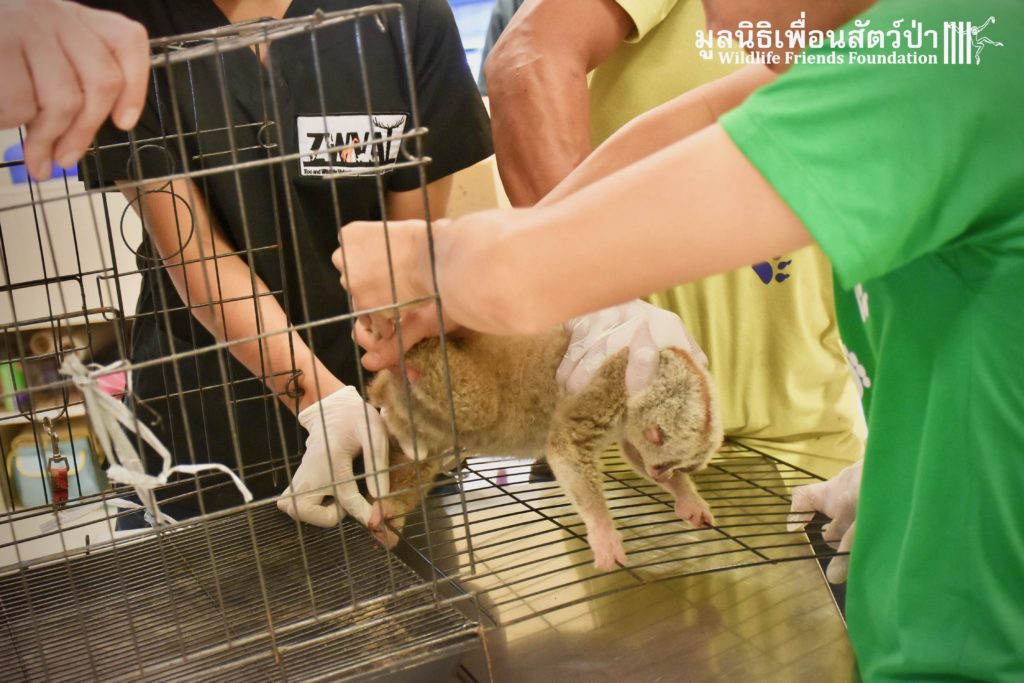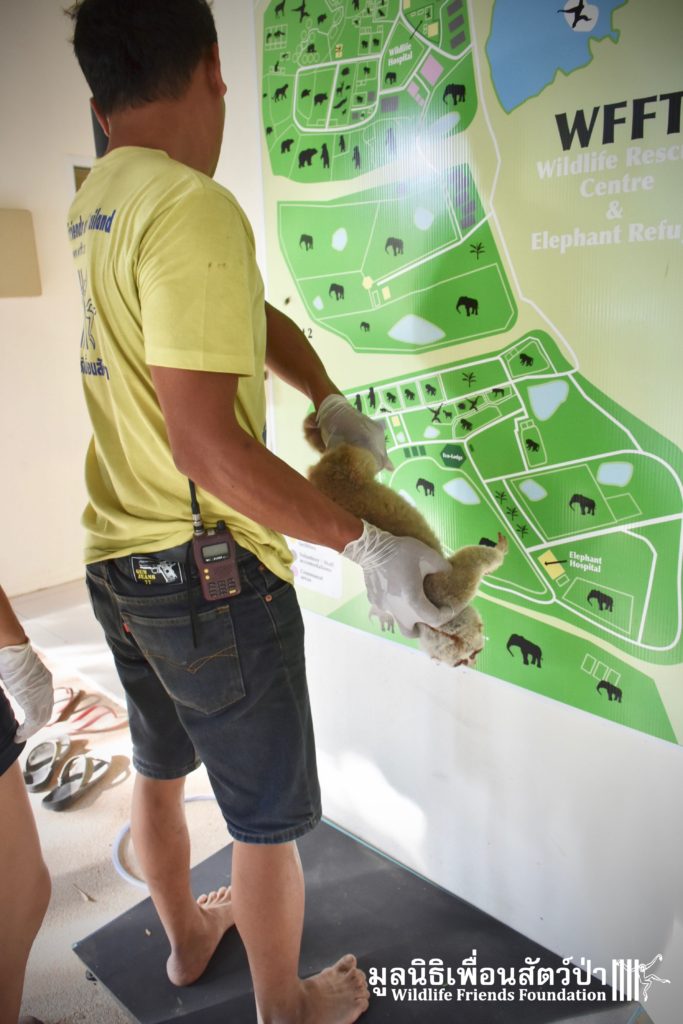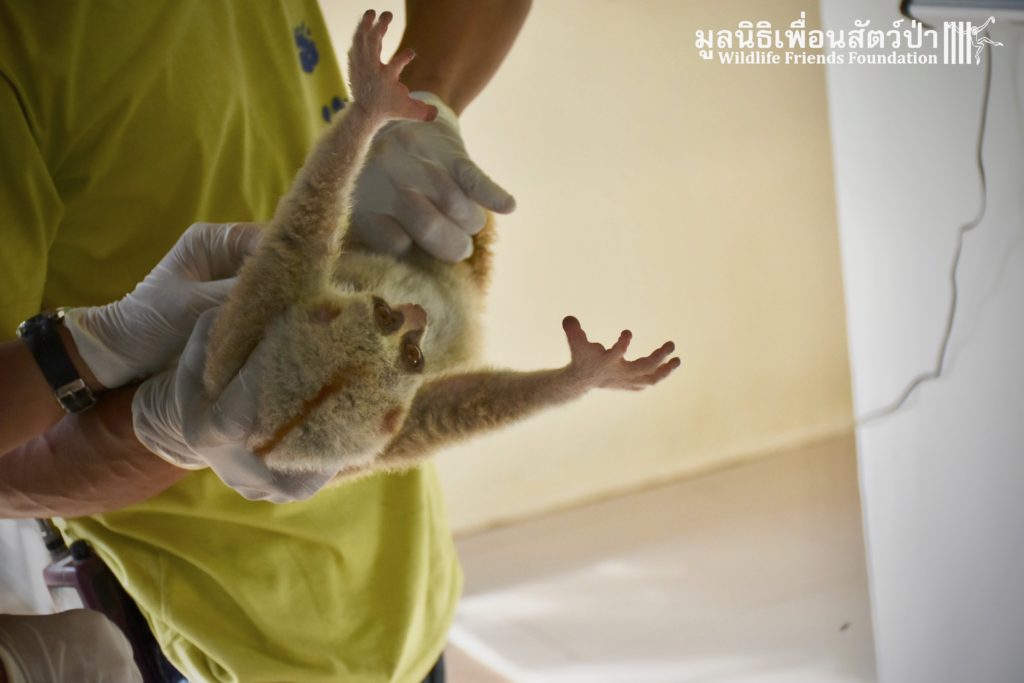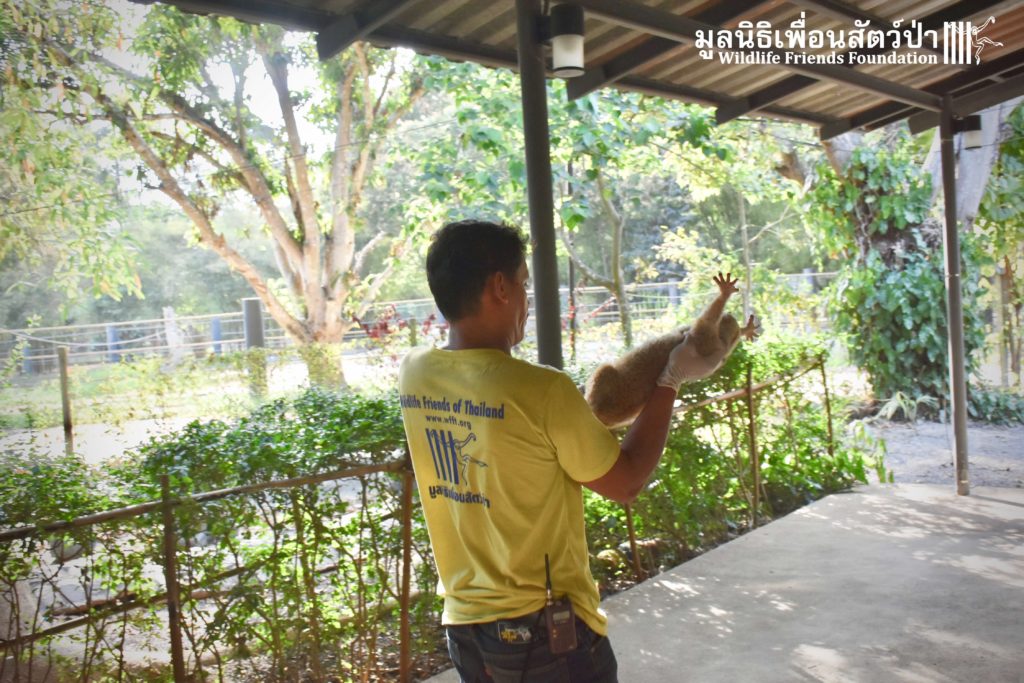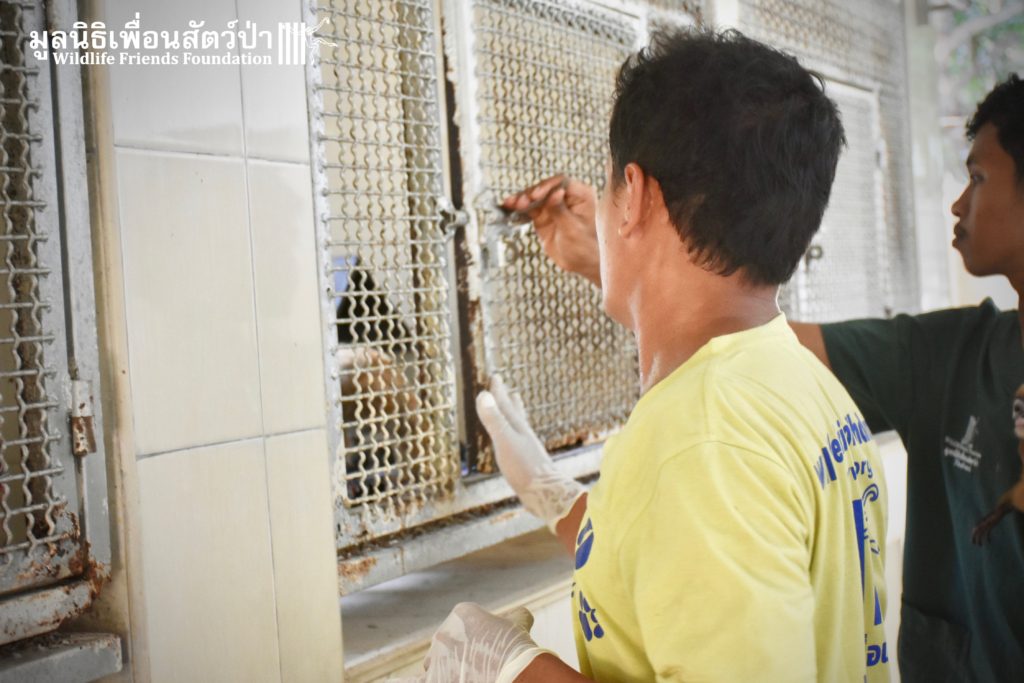After three weeks of dedicated care at the WFFT wildlife hospital, Wang, a wild long-tailed macaque from a local temple, successfully recuperated and was released back to his habitat.
Loridzillas strike at WFFT!
A few days ago 2 new residents, Ling-Ling & La La arrived at the WFFT Wildlife Rescue Centre. These rather large Bengal slow lorises (Nycticebus bengalensis) were previously kept as pets. The first owners were Russian ex-pats who had illegally purchased them. They initially had a male and female (Ling-Ling), who had a baby (La La), one day while being let out in their garden the male loris disappeared. One year ago the owners left the country to go back home and needed to find a solution for the loris. Ling-Ling and La La were then handed over to some friends of friends who then cared for them until contacted WFFT for help.
The Bengal slow loris is listed as Vulnerable (VU) by the IUCN Red List of Threatened Species, due to loss of habitat and severe pressures from hunting, there is more than 30% reduction in population over three generations. It is predicted to decline by more than 30% in the next three generations over its entire range due to continuing hunting pressures and loss of habitat. The major threats that this species’ habitat faces include farming, timber removal, human settlement, road building, dams, power lines, fragmentations, soil loss and erosion, and deliberately set fires. They are hunted and traded for food, traditional “medicine”, sport, and as pets.
On arrival the WFFT, the team were surprised to discover two oversized animals. They were two of the biggest lorises we have seen, in both size and weight. The actual owners, were feeding them with chicken, fruits such as mango but not pineapple (they don’t like it). After a health checkup, our 2 friends spent a few days in a holding in the Wildlife Hospital so we could observe them. Yesterday, they we moved to a larger forest enclosure, were they can have some piece at last.

